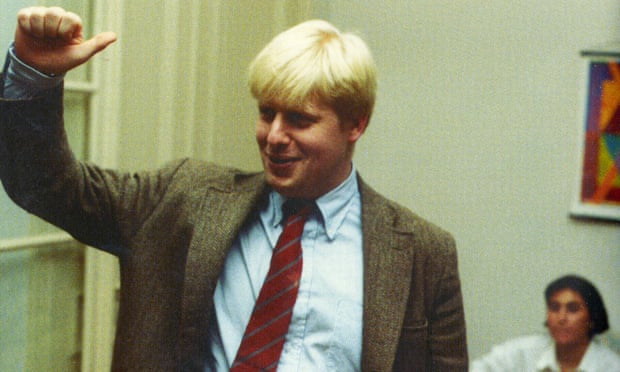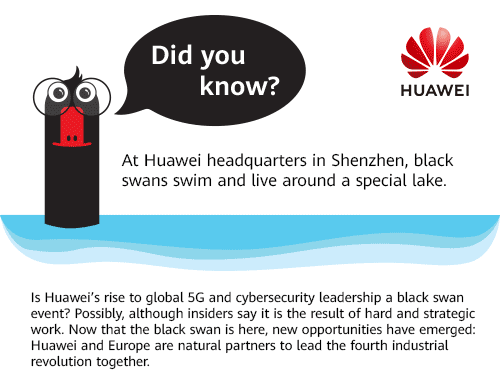BRUSSELS BEHIND THE SCENES
Weekly analysis and untold stories
With SAMUEL STOLTON
Call me Boris
A shock of blonde hair emerges through the doorway and the face underneath becomes blushed, enveloped by the damp heat of the room.
The man raises a plump, pink hand to his flaxen locks and ruffles them, disturbing the subdued colours of this musty Irish pub. Approaching the bar, a wry smile crawls over his face as heads, in mechanical unison, turn in his direction. It is the early 1990s and the future Prime Minister of the United Kingdom, Boris Johnson, has entered Kitty O'Shea's for a lunchtime drink.
Brussels behind the scenes is a weekly investigative newsletter by The Brussels Times' Samuel Stolton. Sent out every Friday afternoon, it brings the untold stories about the characters driving the policies which affect our lives. Analysis not found anywhere else, it helps make sense of what is happening in Brussels.
If you want to receive Brussels behind the scenes straight to your inbox every Friday, subscribe to the newsletter here.
"He used to shuffle in, mumbling to himself, his back hunched and his hands deep in his pockets, scratching his balls," a former employee of the pub tells me. "He was all over the place. A mess."
Johnson has never been one to formally endow himself to his surroundings: often exhibiting a nonchalant indifference to his outwardly appearance, he has been of the opinion that his virtuous traits have been of the mind, rather than of the matter.
But publicly he would rather have you think otherwise - that he were a foolhardy buffoon bequeathed with a generous serving of bonhomie, dishevelled in style and impotent in thought. And the city of Brussels was the first stage of which this dramatis persona was given form to flourish.
In 1973, Boris' father Stanley had contracted employment in the environment directorate of the European Commission. As a result, at the age of 8, Boris was first embedded into the heart of the Eurocentric Brussels experience - enlisting at one of the continent's highly regarded European Schools, attended by children of the EU institution staff, including Marina Wheeler – Boris’ future wife, and, a couple of years his senior, the incoming Commission President Ursula von der Leyen. It was during this time at the European School in Uccle that he managed to perfect his French, his linguistic malapropisms today are in fact more likely to be lines of highly contrived speech manufactured to ‘play to the gallery.’
However, a year into the Brussels' intermezzo, things took a turn for the worse. Boris' mother, Charlotte, had a nervous breakdown and was hospitalised for severe depression. She was sent to London for 9 months, and, despite the fact that Boris and his siblings would make regular visits, their experience back in Belgium was less than homely following her absence. In 1975, sole parent Stanley decided to ship Boris and his younger sister Rachel off to Ashdown House, a boarding school in the UK. The Brussels chapter, for now, had been concluded.
BRUSSELS BEHIND THE SCENES POWERED THIS WEEK BY
Returning in 1989 as the Daily Telegraph's EU correspondent, after a tenuous beginning the 24-year-old Boris began to carve out a niche for himself as one of the city's few Eurosceptic reporters - contriving news reports furnished with a substantial degree of inveracity, often to the ire of colleagues from rival newspapers. In so doing, Johnson became the architect of a new brand of journalistic sensationalism – ridiculing the European project with tales of bendy bananas and Italian prophylactics. Eurosceptic thought was becoming normalised between the pages of one of the UK’s most popular dailies.
Sonia Purnell, who worked alongside Boris during his time in Brussels, observes that while the city was a source of a “great deal of childhood pain and loneliness,” his relationship with the Belgian capital is much more nuanced.
“This was to be where he was first really singled out academically, where his mother suffered a nervous breakdown and his parents split up; where he made his name in journalism, where he lived with both his wives, divorced one and his first child was born,” Purnell writes in her biography of Boris.
And indeed, today – November 1st - Boris' conflicted, tender, tragi-comic, exhilarating, amorous, intimidating relationship with this city was supposed to have been symbolically severed. Johnson was meant to have overcome this poisoned bond with Brussels in being the headsman steering the UK out of the EU.
Yet, he has failed to dissolve the relationship that has been so formative to his own dramatis persona, and, in so doing, is left with the marque of Brussels impressed onto his own being, impeding his ultimate metamorphosis into a leader embellished by a certain Churchillian or Periclean grandeur – which of course, is his prevailing political objective.
As a result, Boris’ treading of the Brussels’ boards continues - and to this city, whether he likes it or not – the character that he fostered for himself endures: The young imprudent and bedraggled arriviste, a supercilious and aloof sensationalist to be entrusted with responsibility at your peril.
As for how this could inform Boris’ future relationship with the city in the context of the UK’s departure from the EU, an anecdote from one former colleague provides an insightful allegory. “At the pub, he never quite understood the concept of ‘getting the rounds in,’” the ex-journalist tells me.
“When it was his turn to buy drinks, he had always conveniently ‘forgotten’ his wallet and intuitively expected someone else to pick up the bill. He would soon after disappear without telling anyone else where he was going.”
Brussels behind the scenes is a weekly investigative newsletter by The Brussels Times' Samuel Stolton. Sent out every Friday afternoon, it brings the untold stories about the characters driving the policies which affect our lives. Analysis not found anywhere else, it helps make sense of what is happening in Brussels.
If you want to receive Brussels behind the scenes straight to your inbox every Friday, subscribe to the newsletter here.


